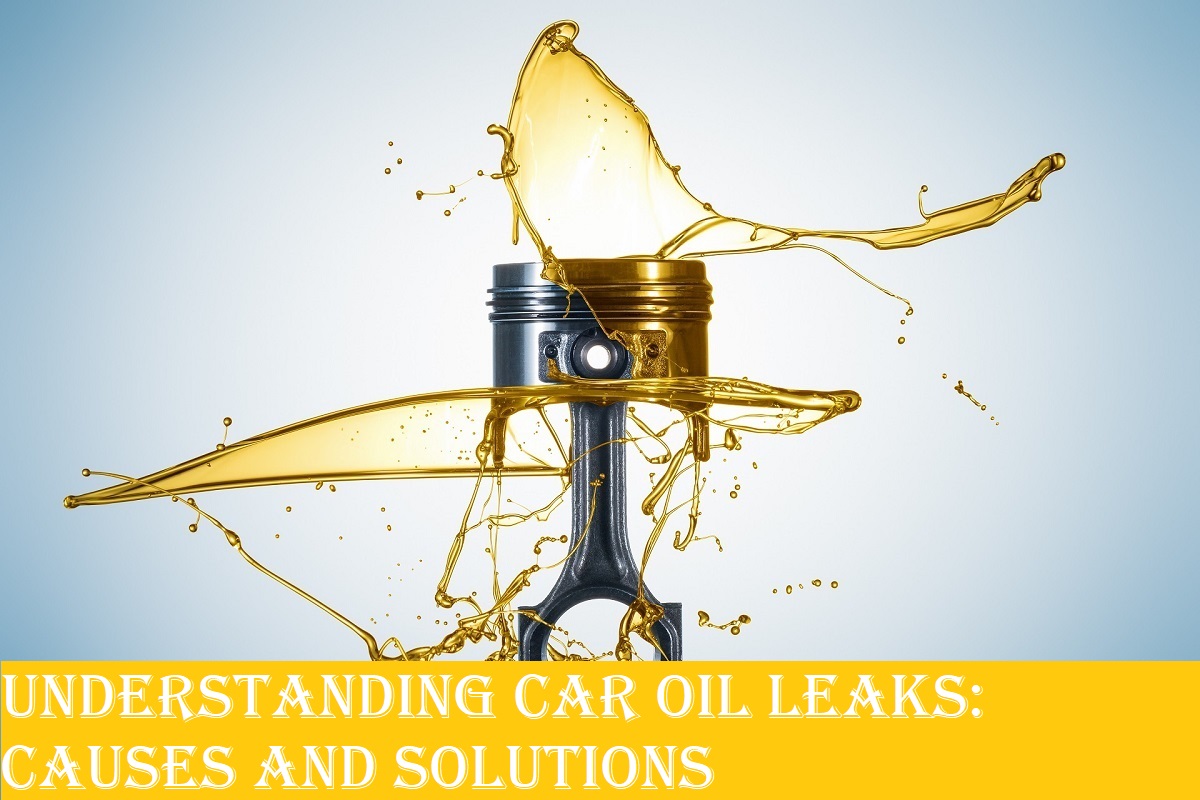
Your car is a complex machine, and while it may run smoothly most of the time, issues like oil leaks can arise and impact its performance. Oil leaks are a common headache for many drivers, but understanding why they happen and how to fix them can save you both time and money in the long run.
Why Engine Oil is Necessary
Before diving into the causes and solutions of oil leaks, it’s important to understand why engine oil is necessary for your car. Engine oil serves as a lubricant for all the moving parts inside the engine, reducing friction and preventing wear and tear. It also helps regulate the temperature of the engine by absorbing heat produced during combustion.
Why Do Oil Leaks Occur?
There are several probable causes of car oil leaks. Here are some of the most common reasons:
1. Age and Wear:
Over time, the various seals, gaskets, and components in your car’s engine can degrade. This degradation is a natural consequence of use and exposure to heat and pressure. As these parts wear down, they become more prone to developing leaks.
2. Improper Maintenance:
Neglecting routine maintenance, such as not changing the oil regularly or ignoring the condition of gaskets and seals, can exacerbate the risk of leaks. Old, dirty oil can lead to a breakdown of engine components and increase the likelihood of leaks.
3. Damaged Parts:
Accidents or impacts, as well as improper handling during repairs or maintenance, can cause damage to critical components like the oil pan, leading to leaks.
4. High Pressure and Heat:
Extreme conditions, such as high-pressure environments or excessive heat, can strain the engine components, potentially causing gaskets and seals to lose their integrity and leak oil.
Identifying an Oil Leak:
Detecting an oil leak early can save you from major headaches down the road. Here’s how you can identify one:
1. Visual Inspection:
Check the ground where your car is parked for oil spots. A puddle or a trail of oil is a clear sign of a leak.
2. Check Oil Levels:
Regularly check your oil levels using the dipstick. A sudden drop in levels without any apparent reason might indicate a leak.
3. Smell and Smoke:
Burning oil emits a distinct smell and smoke. If you notice these while driving or after parking, it could indicate an oil leak.
How to Fix Oil Leaks:
The solution to an oil leak will depend on the cause and severity of the leak. In some cases, simply tightening a loose bolt or replacing a worn-out gasket can solve the issue. However, for more serious leaks, it is best to seek professional help.
1. Identify the Source:
Locating the exact source of the leak is crucial. Clean the engine and examine the areas where oil residue is present. Common areas include the oil pan, valve cover gasket, oil filter, and oil drain plug.
2. Replace Seals and Gaskets:
If the issue lies with worn-out seals or gaskets, replacing them can often solve the problem. However, this task might require technical expertise, so consider seeking professional help.
3. Repair or Replace Damaged Parts:
If there’s physical damage to the oil pan or other components, they might need repair or replacement. Depending on the severity, this could be a simple fix or a more complex and expensive repair.
4. Use Sealants or Additives:
Some minor leaks can be temporarily fixed with sealants or additives designed to swell and revitalize gaskets. However, these are not permanent solutions and should be seen as temporary fixes until proper repairs can be made.
5. Regular Maintenance:
Prevention is better than a cure. Regular oil changes and maintenance help keep the engine healthy and reduce the risk of leaks. Follow the manufacturer’s recommendations for oil change intervals and use high-quality oil.
DIY Vs. Professional Help:
Fixing an oil leak can be a DIY job for those with some mechanical knowledge. However, if you are unsure or uncomfortable with the task, it’s best to seek professional help. Attempting repairs without proper knowledge and experience could lead to further damage and costly repairs. A second opinion from an expert may help you understand the issue better and provide alternative solutions. Understanding the problem will help you avoid future oil leaks and maintain your car’s health. You never know, your car could be having an underlying issue that’s causing the leak, and a professional mechanic can identify and address it. Don’t hesitate to seek help if needed. Your car will thank you for it in the long run! So, next time you spot an oil leak, don’t panic. Take a deep breath and follow the steps discussed above to get your car back on track.
Contact Vann York Chevrolet Buick GMC to Service Your Car
Dealing with an oil leak can be a hassle, but understanding the causes and knowing how to address them can save you from major headaches and potentially expensive repairs. Regular maintenance and vigilance play a significant role in preventing and addressing oil leaks in your car. Remember, a small leak can turn into a significant problem if ignored. If you’re unsure about fixing the issue yourself, it’s always wise to consult a professional mechanic.
Keeping your car’s engine in good shape not only ensures a smooth ride but also extends the life of your vehicle. Reach out to Vann York Chevrolet Buick GMC for reliable car servicing and repairs. Our certified technicians will thoroughly inspect your car and provide the necessary solutions to keep it running smoothly. Don’t wait until it’s too late, schedule an appointment with us today!







